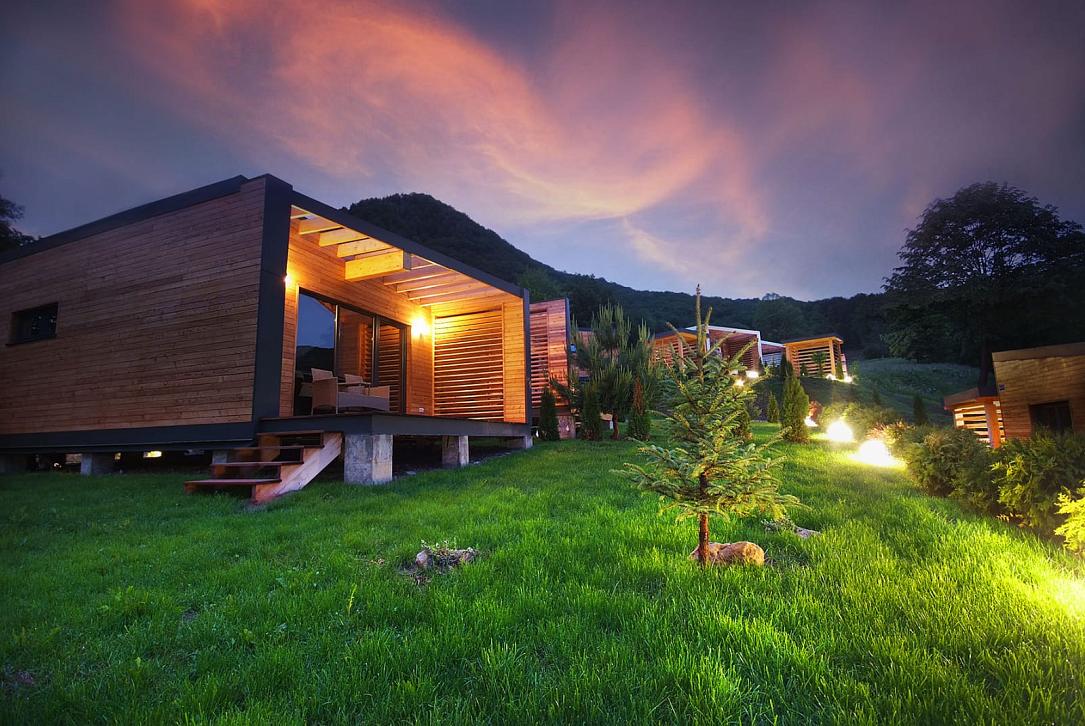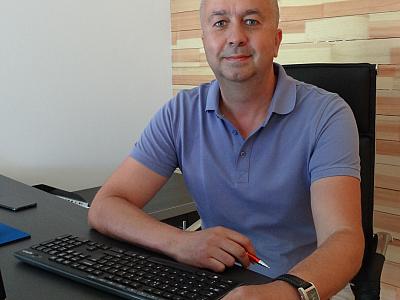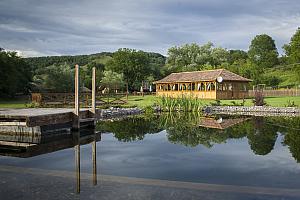Rentakub: How a local tourism business weathers the pandemic, aiming to become a "Romanian Airbnb"

In a travel and tourism sector that took the hit from the coronavirus pandemic, one Romanian entrepreneur saw increased demand for its newly opened accommodation network of houses located in remote areas, accessible in a self-service system.
A passion for tourism and the experience in the construction sector stood behind Costi Zărnescu’s decision to set up the Rentakub network, offering wooden houses located in remote parts of the country, available for rent in a self-service system, through a dedicated platform. The network targets tourists as well as entrepreneurs interested in starting a tourism business by purchasing such houses and offering them for rent.
It is not his first experience in the tourism sector, having started in 2003 a travel agency targeting the French market, and those interested in eco-tourism in particular. “The tourism business was my passion in the years 2000. I can’t say how it started,” Zărnescu told Romania-Insider.com. Later, the idea of the wooden houses emerged, and he co-founded EcoKit, a maker of the wooden homes, a business from which he made an exit last year. “Around 2014-2015, we decided to build a line of holiday homes for rent, where we would take our families and friends, and then spread them throughout Romania. This is how Rentakub appeared.”
“We were always focused on a more atypical, Nordic-looking design; the EcoKit products are similar, more design-oriented. And we created these cube-shaped houses and started selling them to others who wanted to purchase and rent them,” he explains.
The investment to start the project spread over several years, since 2018, amounts to EUR 250,000, including the promotion and the holiday village in Slănic Moldova, developed to show how the Rentakub concept works.
Called La Kuburi, the holiday village in Slănic Moldova has six houses, which can be rented by both tourists and potential partners who want to test the concept. The houses are of different sizes, but each has a yard of between 100 and 200 sqm, lined up by a thuja fence. The guests rent the entire home, and they receive an access code to the property the day before arrival. There’s no reception and there is no one to check them in; there is a shadow staff, doing the cleaning and making sure that things go well, but nobody bothers tourists, he explains.
La Kuburi had an occupancy rate for the summer months of around 98%. In September it was 93%, and in October it was 70%. “It has exceeded our expectations. We opened in February, but the pandemic stopped us, and then we restarted in June; there is still high demand over the weekends,” Zărnescu says.
The businessman plans to expand the village in spring by adding other houses, a shared hall, and a pool. “We want to add five more cubes in spring, but bigger models, with more land around them so it would be even more comfortable for tourists.”
The houses in La Kuburi are part of the Rentakub network, which also includes similar houses in Bacău county and in Băile Felix, in Bihor. Other houses are under construction in Bran, Cluj, and Constanța. The focus is now on expanding the network by attracting partners who want to purchase a Kub house, manufactured by EcoKit, but also by adding other existing holiday homes on the Rentakub reservation platform.
There are eight models of cube-shaped wooden houses available for purchase, with surfaces of 19 to 70 sqm. Once the house is finalized and ready to rent, owners join the Rentakub platform, where they are charged a 7% commission.
At the same time, they decided the open the network to other holiday homes to increase the platform’s visibility and profitability, and offer holiday homeowners an alternative to the existing reservation portals. The network is open to holiday homes that can be rented in full, not to hotels or guest houses that rent rooms separately. “It is very important for us that they can be rented completely, and that they are endorsed by the Tourism Ministry. […] We want a certain stability and a focus on quality,” he says.
By the end of next year, he hopes to have some 40 Kub houses and 100 partner holiday houses in the network. The assembly of an average-sized cube-shaped house can take about a week, with another two for the finishing. However, it can take up to a year between the moment an entrepreneur decides to open a holiday house and the point it can receive guests as the process of obtaining the authorizations, the paperwork or getting the financing is lengthier, Zărnescu explains. The network has a partnership with Kiwi Finance and a partner offering consultancy on EU funds.
As for the pandemic's impact, the entrepreneur offers a different perspective. “The pandemic helped us a lot because people are looking for isolated spots, and also atypical. Our cubes came about in this pandemic context, but they are also different, as design and functionality.”
But while the network is still in its beginnings, it offers a type of accommodation in demand, Zărnescu says. “The network is still small, but there is high demand. […] Banks are currently reluctant to offer financing for construction, our hospitality area is not all well seen by banks right now, and we are part of HORECA even if we are somewhat atypical; we would need financing to build rapidly because there is demand.”
Meanwhile, Rentakub plans to build its place in the less developed self-service tourism segment and become the first choice “of those who want to rent a distinctive unit, to be a Romanian Airbnb.”
(Photos courtesy of Rentakub)
simona@romania-insider.com














